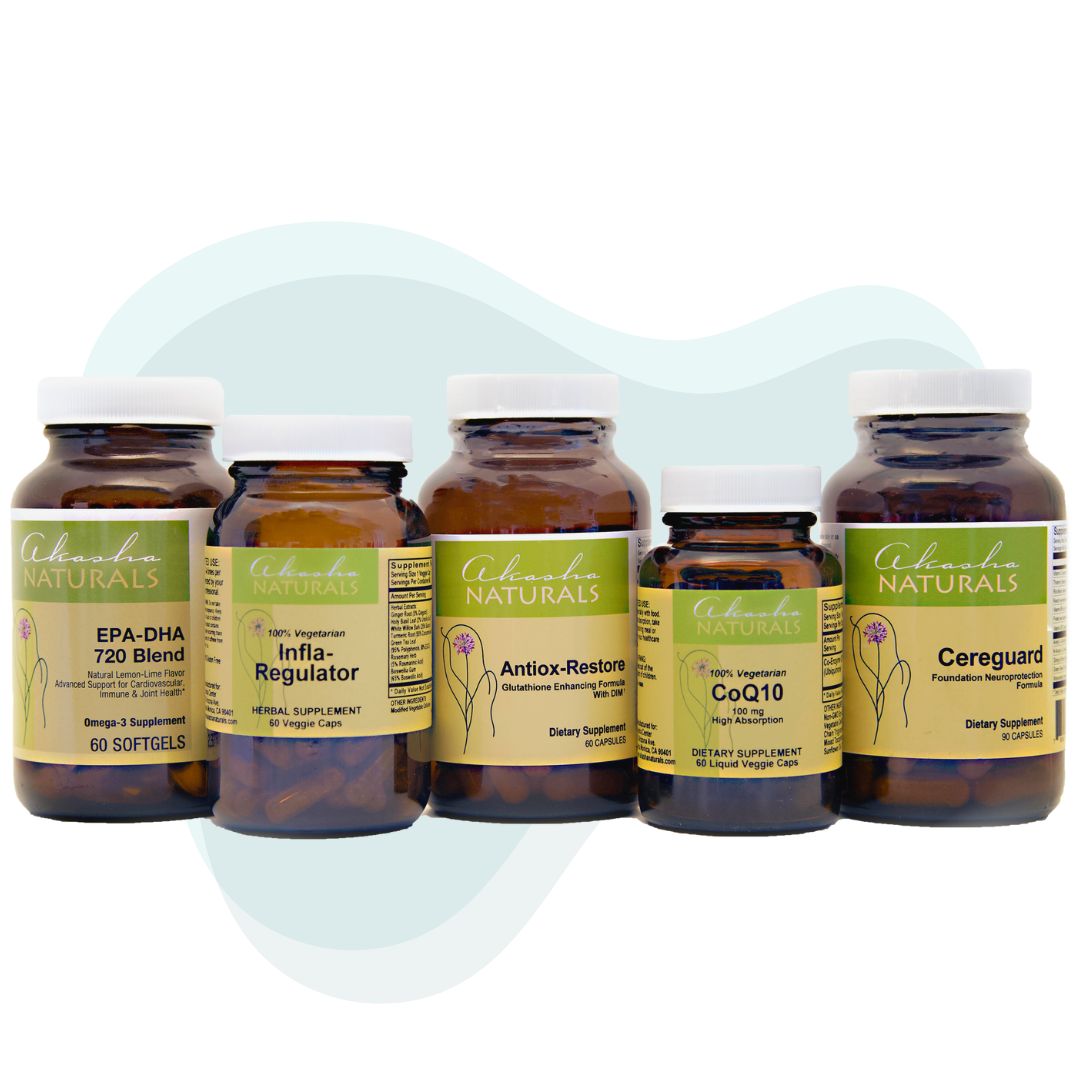Irritable Bowel Syndrome is a diagnosis many people have received. But it is not a diagnosis that should leave you satisfied as to why you are experiencing bloating, gas, constipation, and/or diarrhea. Irritable Bowel Syndrome is a label that describes these uncomfortable symptoms, but it does not tell you the cause of your symptoms. There are many causes of IBS and being told you have IBS, without a discussion as to the possible causes, is practicing medicine halfway. Millions of people may suffer from IBS every day, but the cause of their IBS may be different. Take a look below at the possible causes of IBS and find a trusted healthcare partner to help you dig a little deeper to find your root cause so a specific treatment plan can be developed that brings you relief.
GUT MICROBIOME IMBALANCE
Changes in the gut microbiome, which is the balance and composition of your gut bacteria, can affect gut health and contribute to symptoms of IBS. Small Intestinal Bacterial Overgrowth (SIBO), which is an overgrowth of bacteria in the small intestine (which is a place normally very low in bacteria) is now being considered the leading cause of IBS. Fungal overgrowth in the small intestines (SIFO) is also being recognized as a cause of IBS. You can test for SIBO with a breath test. SIFO can be diagnosed with an endoscopy but can sometime be assumed as the cause if symptoms improve with antifungal therapy. In addition, overgrowth of certain bacteria or fungus in the colon can contribute to IBS symptoms. You can test for this with a comprehensive stool analysis. It is also important to note that even after recognizing a gut microbiome imbalance, you need to ask why these microbes have overgrown? Treatment consists of killing the bad bacteria or fungus, but also understanding what led to the conditions of overgrowth. These conditions may include damaged intestinal migrating motor complex, poor diet, or antibiotic history.
POST-INFECTIOUS IBS
The motility of our gut can be affected after an episode of food poisoning or after a stomach bug. Many of my patients say that their digestion has not been the same since an episode of food poisoning several years ago. Common bacteria that cause food poisoning or stomach bugs are Shigella, E.coli, Campylobacter, C.difficile, and Salmonella. These bacteria release a toxin known as Cdtb into the body. Our incredible immune system then makes antibodies to attack Cdtb, known as anti-Cdtb. Unfortunately, Cdtb looks very similar to a naturally occurring protein in the body known as vinculin. Vinculin is essential for a healthy gut immune system. When our body makes antibodies against Cdtb, our body sends additional antibodies against vinculin, and this affects our gut lining, our gut immune system, and our gut’s migrating motor complex (MMC). This can lead to microbiome balance imbalance, SIBO, yeast overgrowth, and affects our gut motility. A blood test can determine if you are making these antibodies. If this cause is identified, a treatment can be started to help balance the microbiome and, more importantly, support the nerves that affect gut motility.
FOOD INTOLERANCE
Food sensitivities are also a common trigger for symptoms of IBS. Common food sensitivities including gluten, dairy, soy, citrus, and eggs, can be identified with a 3-week elimination diet. Other people may have very unique food sensitivities such as bananas, cashews, or food additives. A food sensitivity panel via a blood test can often be helpful in detecting these other food sensitivities. If individual also has SIBO (see above) they may be particularly sensitive to different types of carbohydrates known as FODMAPs. High FODMAP foods consist of avocados, apples, garlic, beans, onions, broccoli, and cauliflower. A trial of a low fodmap diet can be helpful in determining if you are sensitive to FODMAPs. Others are sensitive to foods with high histamine levels such as eggplant, spinach, alcohol, and fermented foods. Again, a trial of a low histamine diet can help to identify if this is you.
INADEQUATE DIGESTIVE ENZYMES
Some people do not produce adequate pancreatic enzymes or stomach acid (HCL). This can be tested for with a stool test to measure pancreatic enzymes or a test to measure stomach acidity for hypochlorhydria. You can also discuss doing a trial of pancreatic enzymes or HCL to see if symptoms improve. You know what is an incredible way to naturally increase your body’s natural production of HCL and pancreatic enzymes? Slow down while you eat. Do not multitask and appreciate the look, smell, and flavor of your food. When we eat slowly and mindfully and do not multitask while eating (meaning turning off the TV and putting down the phone) our body’s natural ability to support digestion with producing adequate enzymes is enhanced.
GUT-BRAIN CONNECTION
Our gut is considered our second brain. Within the wall of our gut is our enteric nervous system (ENS) which is a thin layer of more than 100 million nerve cells that line our entire digestive system from our esophagus to our rectum. Our ENS controls our digestion but also happens to be affected stress, anxiety, and depression. Our brain can affect our gut and our gut heath can affect our brain. It is an intimate relationship that needs to be appreciated when understanding and treating IBS.
STRESS
Stress can shift our body’s parasympathetic state (a relaxed state that encourages proper digestions by supporting gut motility and digestive enzyme output) to a sympathetic state (fight or flight). In a sympathetic state, our survival instincts kick in and our body inherently understand that energy needs to be moved away from digestion towards survival. This means instead of supporting digestion; we are shifting our body’s focus to our heart and muscles. When we eat while we feel stress, food does not get adequately processed, leading to more bloating, gas, constipation, or diarrhea.
FINAL THOUGHTS
When I see patients with IBS, I have an understanding of what symptoms they may be experiencing. It can debilitating and embarrassing. But this is just the start of the dialogue. A comprehensive health history, nutrition and dietary intake, and close look of lifestyle factors can help guide determine potential root causes. Treating the cause of IBS can be a straightforward and easy process but it may also be a of trial-and-error process following a guided gut health algorithm. But having a partner to guide you through this can be an exciting and empowering experience. You do not need to suffer with uncomfortable gut symptoms anymore.
Dr. Maggie Ney is a naturopathic doctor and director of the women’s clinic at the Akasha Center. She specializes in hormones and healthy aging and understand that without a health gut, hormonal balance and optimal aging cannot occur. Dr. Ney is seeing patients in person or virtually, call the Akasha Center at 310-451-8880 or email us at info@akashacenter.com to inquire more about her services and scheduling.







